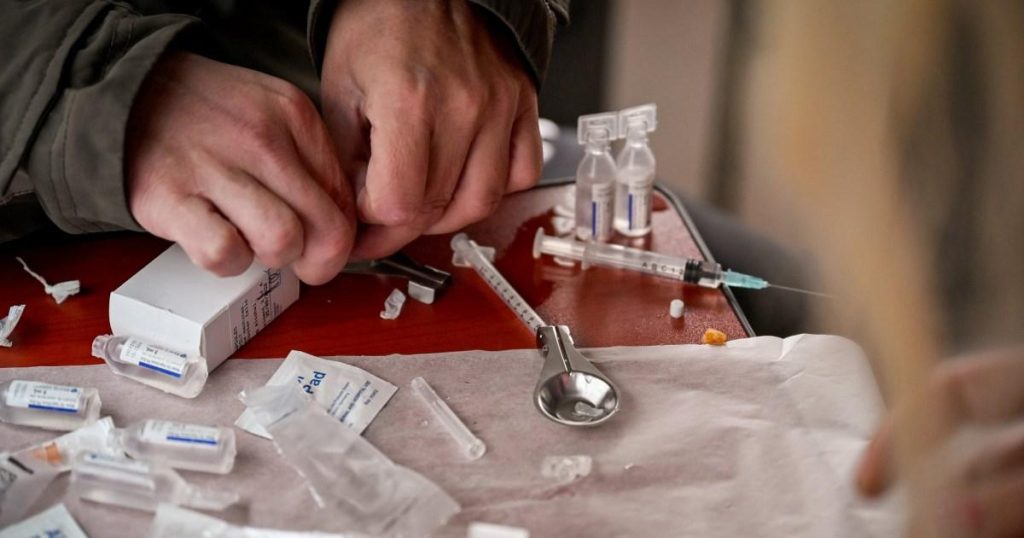Paragraph 1: The UK’s inaugural safe drug consumption room, named Thistle, opened its doors in Glasgow in January 2024. Located on Hunter Street, the facility operates daily from 9 am to 9 pm, offering a supervised environment for individuals to consume illegal drugs like heroin and cocaine under the watchful eye of trained clinicians. This initiative marks a significant step in the UK’s approach to harm reduction, mirroring similar facilities operating globally with proven success in mitigating the negative consequences of drug use. Councillor Allan Casey, championing the project, expressed relief at its launch and emphasized the potential of Thistle to make a tangible difference in Glasgow’s ongoing struggle with drug-related challenges.
Paragraph 2: Scotland has grappled with a persistent drug crisis, experiencing a 12% rise in drug misuse deaths in 2023, totaling 1,172. Though this figure represents the second lowest since 2017, the ongoing issue underscores the urgent need for innovative solutions. Thistle’s inception, almost a decade in the making, stemmed from a 2016 proposal following a surge in HIV infections among Glasgow’s injecting drug users. Drawing parallels to a previous HIV outbreak in Edinburgh during the 1980s, which was successfully managed through the introduction of needle exchange programs, Thistle represents a similar harm reduction strategy, aiming to curb overdoses, disease transmission, and public drug use.
Paragraph 3: Thistle operates on the principle of harm reduction, providing a safe space and clean equipment for drug consumption. Importantly, the facility does not supply drugs. The presence of healthcare professionals is crucial for immediate intervention in case of overdose or other medical emergencies. This approach, championed by figures like John Campbell, who leads the NHS needle exchange scheme in Glasgow, is seen as a proactive measure to prevent future outbreaks and provide a pathway to treatment for those struggling with addiction. The facility’s location within an existing drug treatment center is strategic, facilitating seamless access to further support and resources for individuals seeking help.
Paragraph 4: Beyond the immediate health benefits, Thistle aims to address the broader social impact of drug use, including reducing public drug consumption and the associated litter. By providing a designated space for drug use, the facility seeks to minimize open drug scenes and discarded paraphernalia, improving public safety and community well-being. The policy of harm reduction recognizes that interacting with healthcare professionals in a non-judgmental setting can encourage individuals to consider treatment options, unlike potential negative encounters with law enforcement, which can deter help-seeking behavior. This method emphasizes building trust and rapport, ultimately aiming to guide individuals towards recovery.
Paragraph 5: Despite widespread support, Thistle’s journey to opening was not without obstacles. Initially slated for a 2023 launch, technical issues relating to water and ventilation systems delayed the process. Furthermore, the project has faced political and legal hurdles, including the 2020 arrest and subsequent dropped charges against Peter Krykant, who operated a volunteer-run drug consumption van in Glasgow. These challenges highlight the complexities surrounding drug policy and the sometimes conflicting views on effective interventions. The initial opposition from the Conservative UK government further underscores the evolving political landscape around harm reduction strategies.
Paragraph 6: The opening of Thistle represents a shift in the UK government’s stance on safe drug consumption spaces. The Scottish government’s substantial financial backing of £2.3 million underscores its commitment to combating the drug crisis. Health Secretary Neil Gray welcomed Thistle as part of a broader £250 million national mission to address drug deaths, which encompasses initiatives such as expanding residential rehabilitation places, establishing drug-checking facilities, and increasing access to naloxone, a life-saving medication that reverses opioid overdoses. The combined efforts of these multiple strategies represent a comprehensive approach to tackling the multifaceted challenges of drug addiction in Scotland.




